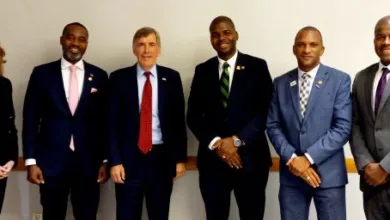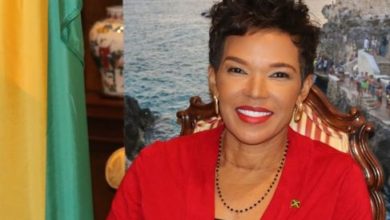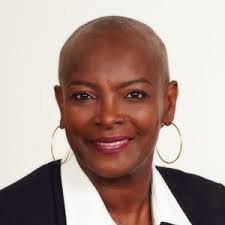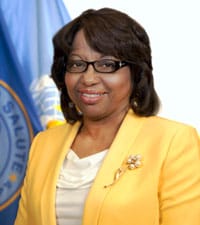Foreign Minister Outlines Guyana’s Position On Venezuelan Claim
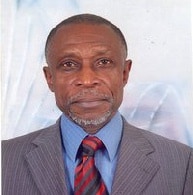
MIRAMAR – Guyana’s Vice President and Minister of Foreign Affairs Carl Greenidge wrapped up a 60-hour visit to south Florida last Saturday night during which he briefed various audiences on the current situation regarding Venezuela’s renewed claim to Guyana’s territory and waters.

Minister Greenidge used the opportunity of the Florida Conference on Current Caribbean issues put on by the Institute of Caribbean Studies (ICS) and the Greater Caribbean American Chamber of Commerce; a Town Hall meeting for Guyanese and friends of Guyana in south Florida hosted by the Guyana Honorary Consul; a meeting with a group of maritime lawyers; a lunch hosted by the Beacon Council; an interview with a team of senior editors at the Miami Herald; and a press brunch to clearly outline the historical and recent developments regarding Venezuela’s claim and recent threats against Guyana.
In all his presentations he made it clear that the only option to which Guyana would agree to decide whether there is any merit to the claim is judicial settlement via the International Court of Justice (ICJ) and it was now up to United Nations Secretary General Ban Ki Moon “to do his job and facilitate the process towards a judicial settlement of this claim”. However, Venezuela is opposing the judicial settlement option preferring to pursue the good offices mechanism, which Minister Greenidge pointed out has been tried for the past 23 years yielding “little or no success”.
“Guyana is of the firm belief that this controversy, arising out of the Venezuelan claim that the Arbitral Award of 1899 is null and void can only be settled once and for all through the judicial process. Before there could be any adjustment to the demarcations of our territorial and maritime boundaries the ICJ must first rule on whether the Arbitral Award of 1899 is null and void. It is Guyana’s firm view that that Award is legally binding and that the existing boundaries must remain intact,” Greenidge told a luncheon at the conference attended by diplomats, elected officials, business executives and community leaders.
In tracing the historical developments related to the boundaries Greenidge referred to a number of agreements which clearly point to Venezuela’s acceptance of the current boundaries up until it first raised its claim in 1962. Among these agreements, he explained is the 1932 demarcation of the point where the Guyana, Venezuela and Brazil borders meet. Further, he explained that as a result of the 1899 Arbitral Award Venezuela had benefitted from “the award of significant portions of real estate (land) which were previously the territory of then British Guiana.”
Minister Greenidge argued that the renewed Venezuelan claim to Guyana’s land and maritime space is an attempt by that country to develop sovereignty over an Atlantic Coast which it does not currently have so as to lay claim to the resources which are to be found in those waters. The recent Venezuelan decree seeks to lay claim to waters which fall within the legally established boundaries not only of Guyana but Trinidad and Tobago, Suriname, Dominica and other Eastern Caribbean countries, he said.
The Vice President and Foreign Minister made it clear that Guyana was leaving no stone unturned in pursuit of the safeguard of its legally established boundaries and had embarked on a campaign to sensitize and seek the support of the international community including CARICOM, the Commonwealth, the G-77 and the United Nations. He disclosed that this issue would occupy a great deal of the presentation by Guyana’s President David Granger to this year’s session of the United Nations General Assembly as well as form the basis for a number of bilateral meetings during the President’s visit to New York later this month.
Venezuela, according to the minister, has been accusing Guyana of being hostile and of “undertaking the greatest heist of another country’s natural resources ever in history” which he said points to the true reason for president Maduro’s actions…..access to the oil and other resources which belongs to Guyana.
While not ruling out that Maduro could resort to military action, even if limited, Greenidge said that Guyana’s efforts include sensitizing its friends and allies to this possibility and encouraging them to use their influence to advise Maduro against harboring any such thoughts.
The Minister in his presentations at the conference and the town hall meeting pointed to the important role of the Guyanese and Caribbean Diaspora in assisting to defend and promote Guyana’s interests on this matter.
“I am indeed pleased with the interest shown and the commitments of support for Guyana on the Guyana/Venezuela issue. I had very good meetings at which I was able to exchange views with persons knowledgeable on maritime issues and with Guyanese and friends of Guyana who were eager to be updated on the matter,” Greenidge told reporters at a press brunch last Saturday hosted by former Guyanese diplomat Wesley Kirton.
ADVERTISEMENT


